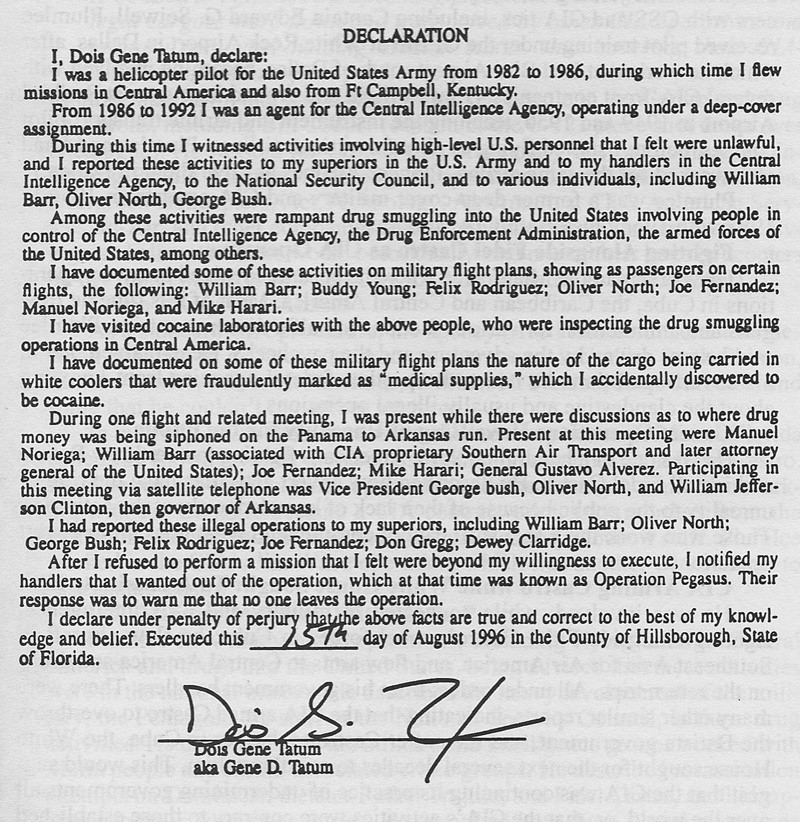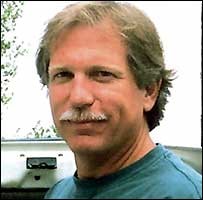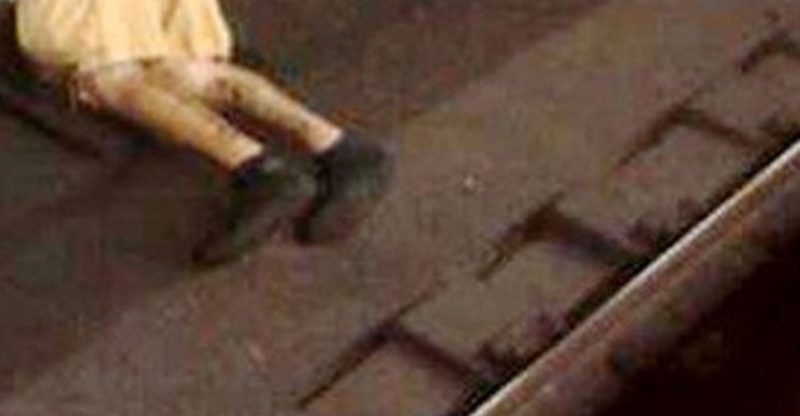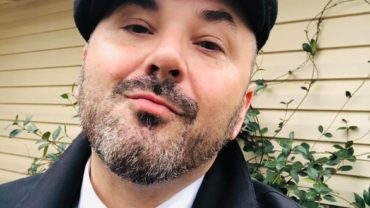Allegations regarding “Butch” Merritt, Watergate, Intelligence Agencies and “Crimson Rose,” Vol. IV
The Third Rail – Part One
Written (and first posted) by Kris Millegan, March 18, 2011

We’ve surely got trouble!
Right here in River City,
Right here!
Gotta figger out a way
To keep the young ones moral after school!
— Meredith Willson, Ya Got Trouble, The Music Man
Wikipedia states: The phrase third rail is a metaphor in politics to denote an idea or topic that is so “charged” and “untouchable” that any politician or public official who dares to broach the subject would invariably suffer politically.
The subject we are talking about is so charged that it doesn’t even make the list of Wikipedia’s examples of “hot button” issues: the extraconstitutional importation of narcotics by the CIA, other intelligence agencies, and their “friends.”
Officially, CIA-Drugs doesn’t exist:
“We found absolutely no evidence to indicate that the CIA as an organization or its employees were involved in any conspiracy to bring drugs into the United States.” — CIA Inspector General Frederick R. Hitz, March 23, 1998
Alexander Cockburn and Jefferey St.Clair in Whiteout – The CIA, Drugs and the Press, show the manipulation of our system to keep us hoi polloi befuddled and in the dark. As with the crime of blackmail, “strategy” is trumping ethics:
“The Uncover-up“
“Down the decades the CIA has approached perfection in one particular art, which we might term the “uncover-up.” This is a process whereby, with all due delay, the Agency first denies with passion, then concedes in profoundly muffled tones, charges leveled against it. Such charges have included the Agency’s recruitment of Nazi scientists and SS officers; experiments on unwitting American citizens; efforts to assassinate Fidel Castro; alliances with opium lords in Burma, Thailand and Laos; an assassination program in Vietnam; complicity in the toppling of Salvador Allende in Chile; the arming of opium traffickers and religious fanatics in Afghanistan; the training of murderous police in Guatemala and EI Salvador; and involvement in drugs-and-arms shuttles between Latin America and the US.
“The specific techniques of the uncover-up vary from instance to instance, but the paradigm is constant, as far back as Frank Wisner and his “mighty Wurlitzer” of CIA friendlies in the press. Charges are raised against the CIA. The Agency leaks its denials to favored journalists, who hasten to inform the public that after intense self-examination, the Agency has discovered that it has clean hands. Then, when the hubbub has died down, the Agency issues a report in which, after patient excavation, the resolute reader discovers that, yes, the CIA did indeed do more or less exactly what it had been accused of. Publicly, the Agency continues to deny what its report has reluctantly admitted. The accusations are initially referred to in the CIA-friendly press as “unfounded” or “overblown” or “unconfirmed,” or – the final twist of the knife – “an old story.” After the CIA denials, they become “discredited accusations” and usually, when the fuss has died down, they revert to their initial status of “unfounded” or even “paranoid” charges, put about by “conspiracy -mongers. “
“Faithful to the “uncover-up” paradigm, the CIA passionately denied the allegations made by investigators including Gary Webb about the Agency’s alliance with drug-smuggling Contras, its sponsorship and protection of their activities in running cocaine into the United States. Then came the solemn pledges of an intense and far-reaching investigation by the CIA’s Inspector General. In his 1996 series of denials, CIA director John Deutch had promised that the Agency’s Inspector General, Frederick Hitz, would conduct an internal review of all Agency files relevant to the issue and swiftly place the facts before the American people because of “the seriousness of the allegations and the need to resolve definitely any questions in this area.”
“Inspector General Hitz went to work. At first, Deutch pledged that Hitz would present his findings within three months. Ritz was unable to meet this schedule. For almost a year and a half there was silence, except for intermittent news tidbits in the Washington Post from the CIA’s erstwhile apprentice Walter Pincus to the effect that the Inspector General’s probe was turning up nothing on Norwin Meneses.
“Then, on December 18, 1997, stories in the Washington Post by Walter Pincus and in the New York Times by Tim Weiner appeared simultaneously, both saying the same thing: Inspector General Ritz had finished his investigation. He had found “no direct or indirect” links between the CIA and the cocaine traffickers. As both Pincus and Weiner admitted in their stories, neither of the two journalists had actually seen the report whose conclusions they were purporting to relay to their readers. These two news stories were promptly picked up by the networks, all of which made great play with the news that the CIA was clean. It was at this point that Gary Webb announced that after negotiation, he and his newspaper, the San Jose Mercury News, were parting company.
“Then, fully six weeks later, George Tenet, the CIA’s new director, declared that he was releasing the Inspector General’s report. Anyone listening to Tenet’s announcement could have reasonably concluded that Weiner and Pincus had been accurate in their anticipatory news stories. Tenet boasted that “this has been the most extensive investigation ever undertaken by the Inspector General’s office, requiring the review of 250,000 pages of documents and interviews with over 365 individuals. I am satisfied that the IG has left no stone unturned in his efforts to uncover the truth. I must admit that my colleagues and I are very concerned that the allegations made have left an indelible impression in many Americans’ minds that the CIA was somehow responsible for the scourge of drugs in our inner cities. Unfortunately, no investigations – no matter how exhaustive – will completely erase that false impression or undo the damage that has been done. That is one of the most unfortunate aspects of all of this.”
“Tenet’s assertions were duly reported. The actual report itself, so loudly heralded, received almost no examination. But those who took the time to examine the 149-page document found Inspector General Hitz making one damning admission after another. The report described a cable from the CIA’s Directorate of Operations dated October 22,1982, describing a prospective meeting between Contra leaders in Costa Rica for “an exchange in [the US] of narcotics for arms.”
“The CIA’s Directorate of Operations instructed its field office not to look into this imminent arms-for-drugs transaction “in the light of the apparent involvement of US persons throughout.” In other words, the CIA knew that the Contras were scheduling a drugs-for-arms exchange, and the Agency was prepared to let the deal proceed. How did the Inspector General handle this cable, which on its face confirmed the central accusation made by investigators going back to Robert Parry, Brian Barger and Leslie Cockburn’s first reports? The episode is buried deep in the report, itself written in sedative prose, and the Inspector General triumphantly concludes that the CIA was conducting itself in a proper manner, since any action against US citizens involved in the Costa Rica meeting would have breached the prohibition on activities by the CIA within the United States.”
But all this is about the 1980s and ’90s, and we’re supposed to be talking about “Butch” Merritt, Watergate, Intelligence Agencies and “Crimson Rose.”
Drugs, narcotics trafficking, that’s Wategate’s pre-game arena. That and psy-ops, but then they are different sides of the same coin, with many overlapping players and agendas. Of course there were other corruptions swirling around, assassinations, organized crime, honey traps, surveillance, but one causing the most internal strife and turf battles was drugs. It was the secrecy surrounding the drug operations (and the money, too). Secrecy was also the germ of another scandal relevant to Watergate, that’s the Moorer-Radford spy ring, which we will look at later.
Before Watergate there were several quasi-official “sanctioned” drug pipelines, plus a few “cowboys,” and then, after a couple of dance-moves, by the mid-1980s there appears to have been a “consolidation” of certain black-ops. Bringing organizational fortitude, mechanized money laundering, and official deflection.
Here is some earlier CIA-Drug history from author Doug Valentine in an August 19, 2007 interview with Susan Mazur:
“Valentine: Angleton was key to understanding the CIA. Weiner hasn’t detailed Angleton’s relationship with the underworld through the Federal Bureau of Narcotics. He hasn’t gotten past CIA 101.
“Angleton had his own mysterious agenda, counterintelligence, seeking out enemy agents inside the CIA. He had liaison to the Mafia through Charles Siragusa, a Federal Bureau of Narcotics agent – and Mario Brod, a labor lawyer from Connecticut and New York, who as an Army counterintelligence officer had worked with Angleton at OSS – Office of Strategic Services, the forerunner of the CIA.
“As I say in the book [Strength of the Wolf], James Angleton alone possessed the coveted Israeli account. His loyalty was to the Director of Central Intelligence, Allen Dulles – then Richard Helms, who was chief of Clandestine Services and later DCI. Director William Colby was his enemy.
“Through Angleton’s relationships with Italian royalty, Tibor Rosenbaum [Mossad agent], Charlie Siragusa [FBN agent], Hank Manfredi [FBN], and Mario Brod, he was certainly aware of Meyer Lansky’s central role as the Mafia’s banker in the Caribbean – where Lansky’s mob associate from Las Vegas, Moe Dalitz, opened an account at Castle Bank – as well as in Mexico, where Angleton’s friend, Winston M. Scott, was station chief, and certainly kept tabs on Lansky’s associate, former Mexican president Miguel Aleman. As ever, Angleton and Lansky were the dark stars of the intelligence and financial aspects of international drug smuggling. Alan Block devotes some pages to this in his book, Masters of Paradise.
“Angleton thought William Colby might be a mole. Angleton exposed the divisions within the CIA after 1966, the Colby vs. Helms factions. He also represented the literary sensibility the CIA once had, where finding secrets was like teasing the meaning out of a poem. Now we have sledgehammer spies.
==
“Angleton ran the CIA’s narcotics operation, in league with the Federal Bureau of Narcotics, until 1971, when Helms put it under Tom Karamessines at operations; Karamessines was the former CIA Athens chief. [emphasis added]
“I know for a fact that Angleton in the counterintelligence division of the CIA was in charge of its relations with law enforcement agencies, including the Federal Bureau of Narcotics, which is one of the reasons organizationally that he ended up having relations with people like Charlie Siragusa, a high ranking official in the FBN. This is how Angleton enters into relationships with Corsican drug traffickers and uses them for counterintelligence operations.
“I know this because I interviewed one of the officers who was on Angleton’s staff and who actually was his liaison to the Bureau of Narcotics. And I’ll be talking more about that in my new book, Strength of the Pack. The guy’s name was Jim Ludlum. People say he’s related to Robert Ludlum.
“In 1968 the Federal Bureau of Narcotics was abolished and Lyndon Johnson’s administration created the Bureau of Narcotics and Dangerous Drugs. Angleton and the CIA continued to have an official relationship with the BNDD until 1971, at which point Nixon declared narcotics law enforcement a national emergency and made it an issue of national security.
“And at that point relations switched from Angleton at counterintelligence to the operations branch of the CIA. That’s incredibly important in understanding the history of the CIA’s involvement with drug trafficking, because now it’s no longer a function of counterintelligence, something deep inside the Agency. Now you actually have CIA chiefs of station all around the world becoming actively involved in collecting intelligence on drug trafficking. It became in 1971 a very, very big business – drug trafficking within the CIA. [emphasis added]
“Suzan Mazur: When you say big business, what exactly do you mean?
“Doug Valentine: There was a guy at the CIA who worked with the BNDD. Jim Ludlum then gave up his liaison relationship because he was counterintelligence and the new liaison was an operations officer. His name was Seymour Bolton, the father of Joshua Bolton – now a high ranking official in the Bush administration.
“What the CIA drug business is, is controlling how the DEA targets foreign drug traffickers. The CIA’s drug business is the management of how the DEA conducts foreign investigations. The CIA reports directly to the president or the national security council and there are issues to consider in going after traffickers that transcend law enforcement and involve national security. Which is why Nixon made that change. Nixon did not want officials going off and investigating Chinese drug traffickers at the same time he was to trying to secretly form diplomatic relations with China. So he had to put the CIA in control of how the DEA mounted its foreign drug investigations.
“Suzan Mazur: And what are your thoughts about that arrangement?
“Doug Valentine: If you’re going to go about the business of empire, creating an empire around the world, you don’t want to put it in the hands of a law enforcement agency that’s going to bust Salvador Allende yesterday and General Pinochet tomorrow.
“You want to make sure they only bust Allende. And that Pinochet gets away with drug trafficking for 20 years.
“How the CIA evolved over the past 60 years in all these different ways in relation to narcotics trafficking, to the media, in relation to foreign policy, etc. – has enabled it to consolidate power. It’s far from being out of business or in descent or rising from the ashes. It’s more powerful than it ever was.”
A March 11, 1980 affidavit from Colonel Cutulo given while he was the Commanding Officer of the 10th Special Forces Group (Airborne), 1st Special Forces, Fort Devens, Massachusetts:
“17. Mr. Edwin Wilson explained that it was considered that Operation Watch Tower might be compromised and become known if politicians, judicial figures, police and religious entities were approached or received word that U.S. Troops had aided in delivering narcotics from Columbia into Panama. Based on that possibility, intense surveillance was undertaken by my office to ensure if Watch Tower became known of, the U.S. government and the Army would have advance warning and could prepare a defense.
“Edwin Wilson explained that Operation Watch Tower had to remain secret and gave these reasons: (1) If it became public knowledge it would undermine present governmental interests as well as those in the future. (2) There are similar operations being implemented elsewhere in the world. Wilson named the “Golden Triangle” of Southeast Asia and Pakistan. Wilson stated in both areas of the world the CIA and other intelligence agencies are using the illegal narcotics flow to support forces fighting to overthrow communist governments, or governments that are not friendly towards the U.S.. Wilson named several recognized officials of Pakistan, Afghanistan, Burma, Korea, Thailand and Cambodia as being aware and consenting to these arrangements, similar to the ones in Panama. (3) Wilson cited the military coup in Argentina in 1976, the coup in Peru in 1976, the fall of the Somoza Government in Nicaragua in 1979, and the growing civil war in El Salvador as examples of the need for operations like Watch Tower. As these operations funded the ongoing effort to combat communism and defeat actions directed against the United States or matters concerning the U.S.
“73. Edwin Wilson explained that the profit from the sale of narcotics was laundered through a series of banks. Wilson stated that over 70% of the profits were laundered through the banks in Panama. The remaining percentage was funneled through Swiss banks with a small remainder being handled by banks within the U.S. Wilson indicated that a large portion of the profits are brought into the banks of Panama without being checked. I understood that some of the profits in Panamanian banks arrived through Israeli couriers. I became aware of that fact from normal conversations with some of the Embassy personnel assigned to the Embassy in Panama. Wilson also stated that an associate whom I don’t know also aided in over seeing the laundering of funds, which was then used to purchase weapons to arm the various factions that the CIA saw as friendly towards the U. S. The associates name is Tom Clines. Wilson indicated that most of Operation Watch Tower was implemented on the authority of Clines.
“74. I was notified by Edwin Wilson that the information forwarded to Wash. D.C., was disseminated to private corporations who were developing weapons for the Dept. of Defense. Those private corporations were encouraged to use the sensitive information gathered from surveillance on U.S. Senators and Representatives as leverage to manipulate those Congressmen into approving whatever costs the weapons systems incurred.
“75. Edwin Wilson named three weapons systems when he spoke of private corporations receiving information from Operation Orwell. (1) An armored vehicle. (2) An aircraft that is invisible to radar. (3) A weapons system that utilizes kinetic energy. I got the impression this weapon was being developed either for use by Nasa or for CBR purposes. I wrote down what I recalled at the time and it is attached.
“76. Edwin Wilson indicated to me during our conversation while entailed the dissemination of Operation Orwell information and the identification of the three weapons systems, that Operation Orwell would be implemented nationwide by 4 July 1980.
“77. As of the date of this affidavit, 8,400 police departments, 1,370 churches, and approx. 17,900 citizens have been monitored under Operation Orwell. The major churches targeted have been Catholic and Latter-Day Saints. I have stored certain information gathered by Operation Orwell on Ft. Devens, and pursuant to instructions from Edwin Wilson have forwarded additional information gathered to Wash. D.C.
“78. Per orders from Edwin Wilson, I did not discuss the implementation of Operation Orwell with my staff or others outside of the personnel assigned to surveillance. The only matter discussed with Operation Orwell personnel was what the SATs needed to know in order to carry out their mission. Certain information was collected on suspected members of the Trilateral Commission and the Bilderberg group. Among those that information was collected on were Gerald Ford and President Jimmy Carter. Edwin Wilson indicated that additional surveillance was implemented against former CIA director George Bush, who Wilson named as a member of the Trilateral Commission. I do not have personal knowledge that Ford, Carter or Bush were under surveillance.
“79. I spoke to Col. James N. Rowe on 5 March 1980. I specifically requested that Col. Rowe communicate with several contacts he has within the CIA. I asked Col. Rowe to check out Edwin Wilson. I had two concerns. The first was that Edwin Wilson may pose a threat to National Security by disseminating classified information on the CIA’s activities to personnel without a clearance or a need to know that information. Edwin Wilson, during his conversations with me, outlined information that was classified and to which I had no need to know. Information that pertained to the activities of the CIA in the U.S. and Latin America. I’ve related such conversations with Wilson herein. The second concern I had was the issue of his authority and connection to Thomas Clines. I was told repeatedly that Clines was the agent in charge and that Wilson worked with Clines. Col. Rowe indicated that he would make inquiries I requested and would contact me with that information as soon as he had something. Col. Rowe indicated that it would be 60 to 90 days before he would speak to the CIA contact that was most apt to have knowledge of the information I requested. I agreed to meet Col. Rowe on Ft. Bragg the next week in June in the event Col. Rose received documentation relating to the information I sought.
“80. On 7 March 1980 Col. Rowe contacted me. During the course of our conversation Col. Rowe informed me that his initial inquiries with CIA contacts confirmed that Edwin Wilson was working for Thomas Clines at the times in question. Col. Rowe indicated that Edwin Wilson was under scrutiny by the CIA at that time but had not been given the details of the circumstances surrounding the events of that matter. Col. Rowe also indicated that there was an Israeli aspect to the matter involving Edwin Wilson and Col. Rowe provided the name of David Kimche as being the Israeli most likely to be involved with Edwin Wilson. In regards to my concerns that Edwin Wilson posed a possible threat to national security or to the inner working of the CIA, Col. Rowe indicated that off the record, that was a concern of several people to whom he had spoken. Col. Rowe also indicated that he would be in receipt of documentation by the first week of June which listed Edwin Wilson’s involvement in several operations. I specifically asked Col. Rowe if he had the names of any of those operations at this time and his reply was in the negative. Col. Rowe did indicate that it was his understanding that each operation had basically the same characters involved and Col. Rowe named two other individuals involved with Edwin Wilson. Col. Rowe named Robert Gates and William J. Casey as officials who had been named in the documentation he would acquire prior to our scheduled meeting on June 1980.”
We will run into Edwin Wilson again a bit later.
An affidavit from a CIA-operative Gene Tatum:

I could go on and on and on, pages and pages with documents and commentary about the reality of CIA-Drugs.
But, as NY Times Magazine reporter David Suskind wrote (the aide was later identified as Karl Rove):
“The aide said that guys like me were “in what we call the reality-based community,” which he defined as people who “believe that solutions emerge from your judicious study of discernible reality.” … “That’s not the way the world really works anymore,” he continued. “We’re an empire now, and when we act, we create our own reality. And while you’re studying that reality—judiciously, as you will—we’ll act again, creating other new realities, which you can study too, and that’s how things will sort out. We’re history’s actors…and you, all of you, will be left to just study what we do.” “
Creating realities is simply another term for psy-ops.
Empire and strategy trump ethics!
When did the US become an empire?
After Gary Webb was savaged in 1996? Or later in 2004, when he shot himself twice in the head with a ’38?
CIA-Drugs is now a non-subject, a third rail. Something no newspaper or journalist will even broach.
By design or simple happenstance?

Gary Webb
to be continued …
Watergate Exposed: How the President of the United States and the Watergate Burglars Were Set Up (as told to Douglas Caddy, original attorney for the Watergate Seven), by Robert Merritt is available at TrineDay, Amazon, Barnes & Noble, The Book Depository, and Books-a-Million.









